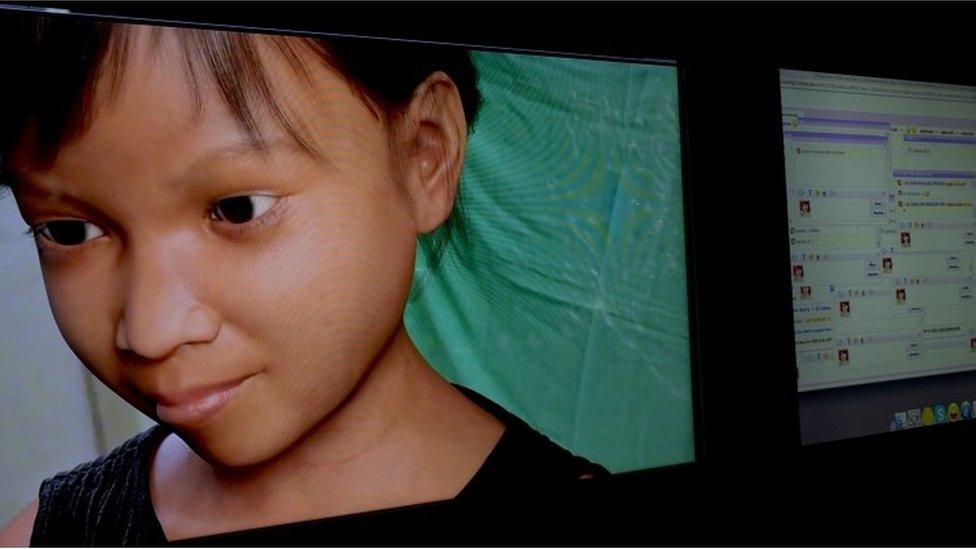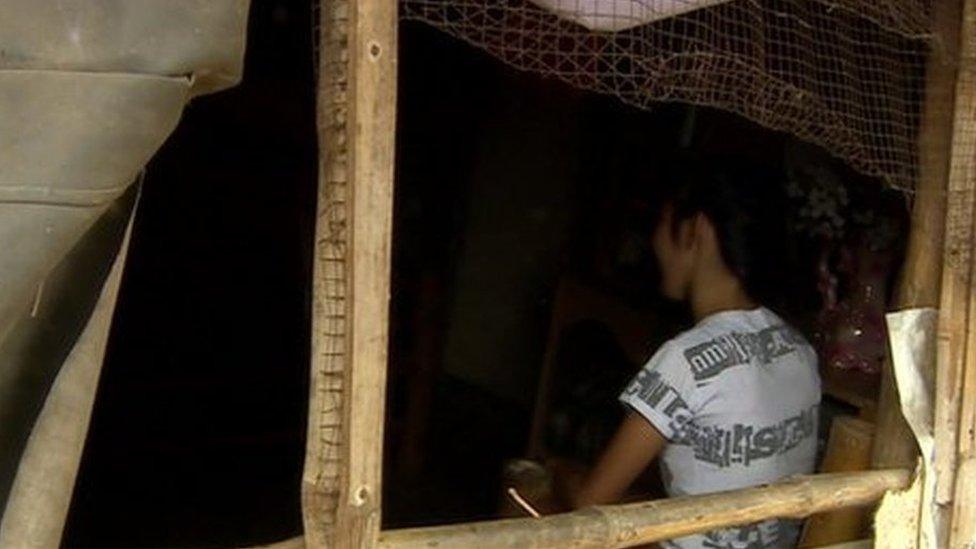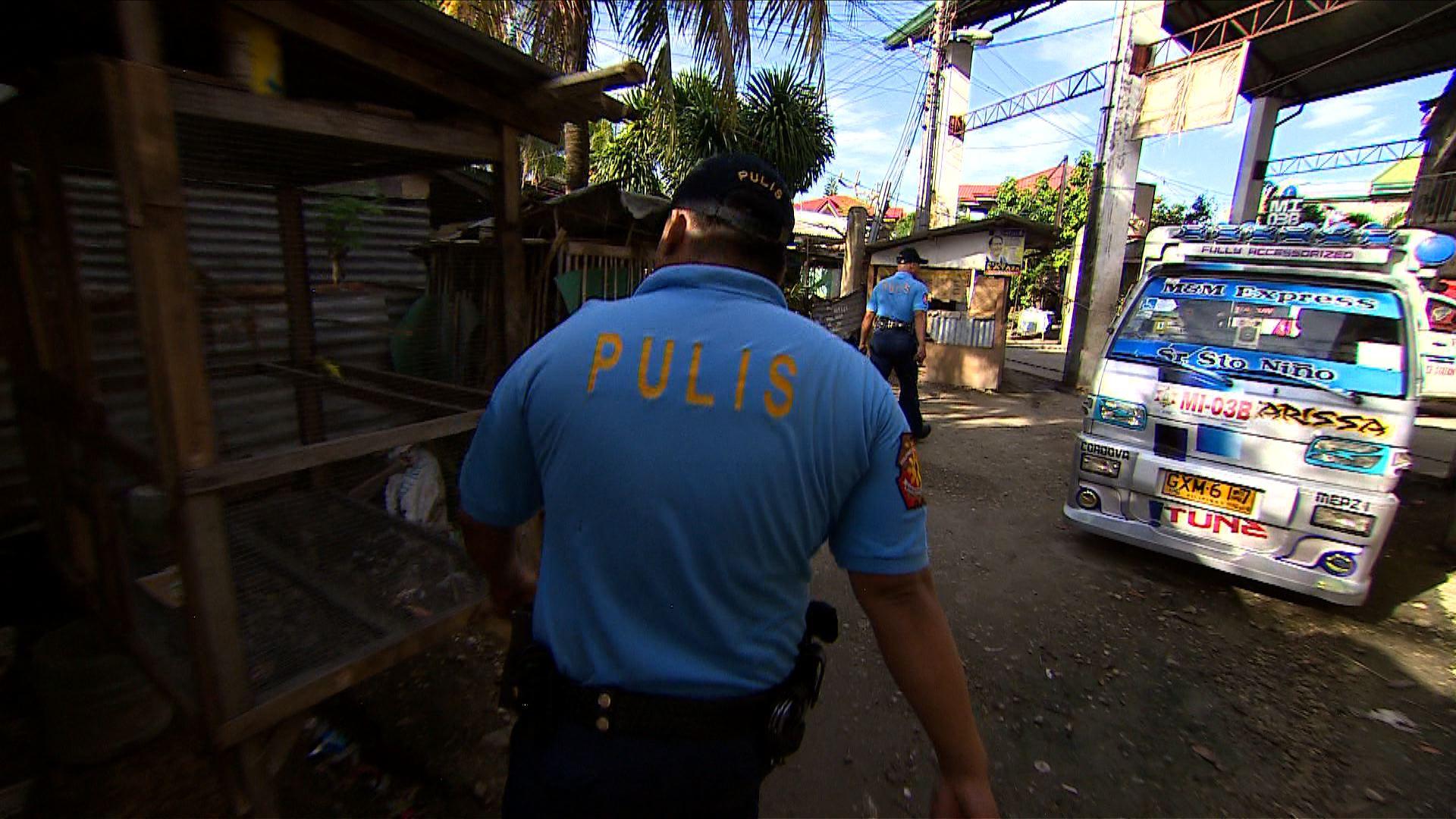Webcam sex abuse 'established reality' in the UK
- Published

Charities have used fake computer generated images of children to try and assess the scale of the problem
Paedophile Trevor Monk paid for the live streaming of child abuse from the Philippines and then travelled there to carry out the abuse himself. His case represents a growing problem of British men ordering abuse over the internet.
A webcam and an internet connection was all Monk needed to carry out a catalogue of abuse on children as young as eight years old.
Having arranged "facilitators" to co-ordinate from Manila, the 47-year-old transferred money in exchange for young girls performing sex acts in front of a computer.
Watching the live stream from his home in Erith, south-east London, Monk later went a step further and travelled to the Philippines where he abused at least nine young girls in person. He is also known to have travelled to Thailand.
Police and charities are concerned this type of abuse is a growing trend, made easier by the amount of untraceable messaging services now available.
Typically offenders like Monk use social media or live pornography sites to make contact - either with a family or a pimp.
They then pay as little as £15 via international transfer and are allowed to direct the abuse over the internet.
But this case also reveals just how much money can be involved. Over a four year period between 2010 and 2014 Monk paid out more than £14,000 to pay for what he called "shows", transferring the money in small amounts via Western Union.
'Established reality'
It is impossible to measure the scale of the problem accurately as experts say offenders rarely record the sessions and there is no way for police to intercept live streaming.
But Europol, the European law enforcement agency, says it's no longer "an emerging trend, but an established reality".
In 2013 Dutch charity Terre des Hommes decided to find out how bad the situation was.
After setting up a fake profile of a Filipina child and even creating a realistic avatar, or web image of the 10-year-old, workers for the charity logged on to internet chat rooms posing as the youngster.
In the space of 10 weeks, "she" was contacted by 20,000 men, 1,000 of whom offered "her" money to perform sex acts.
Two years ago, I travelled to the Philippines to observe the effects of this global crime on the local population.

The BBC found in 2014 that the abuse took place in slum areas in the Philippines
I met children as young as five who had been sexually assaulted by their own parents - paid to do so by sex offenders in Europe.
During visits to slums in Cebu City in the south of the country, I saw that whole areas had been taken over by the trade.
Police took me to a house where children would be brought by their relatives to take part in the live streaming.
I was told that it had become "a cottage industry".
'Powerful message'
Law enforcement is beginning to make inroads into the trade and Filipino police carry out raids and arrests on a regular basis.
Operation Endeavour, which began in 2012, has seen the UK's National Crime Agency working with Australian police and the US authorities and has led to 29 international arrests.
Monk's case is significant because it shows that though his crimes began in the UK, using live streaming, they then led to him travelling to carry out "contact abuse" in the Philippines with the internet facilitating an escalation to his offending.
Nothing is known about what happened to the children he abused, although investigations are still on going.
Though the fact that he got caught was thanks to the co-operation between police forces in four different countries.
That should send a powerful message to offenders that they cannot hide behind the anonymity of the internet.
- Published15 January 2014
